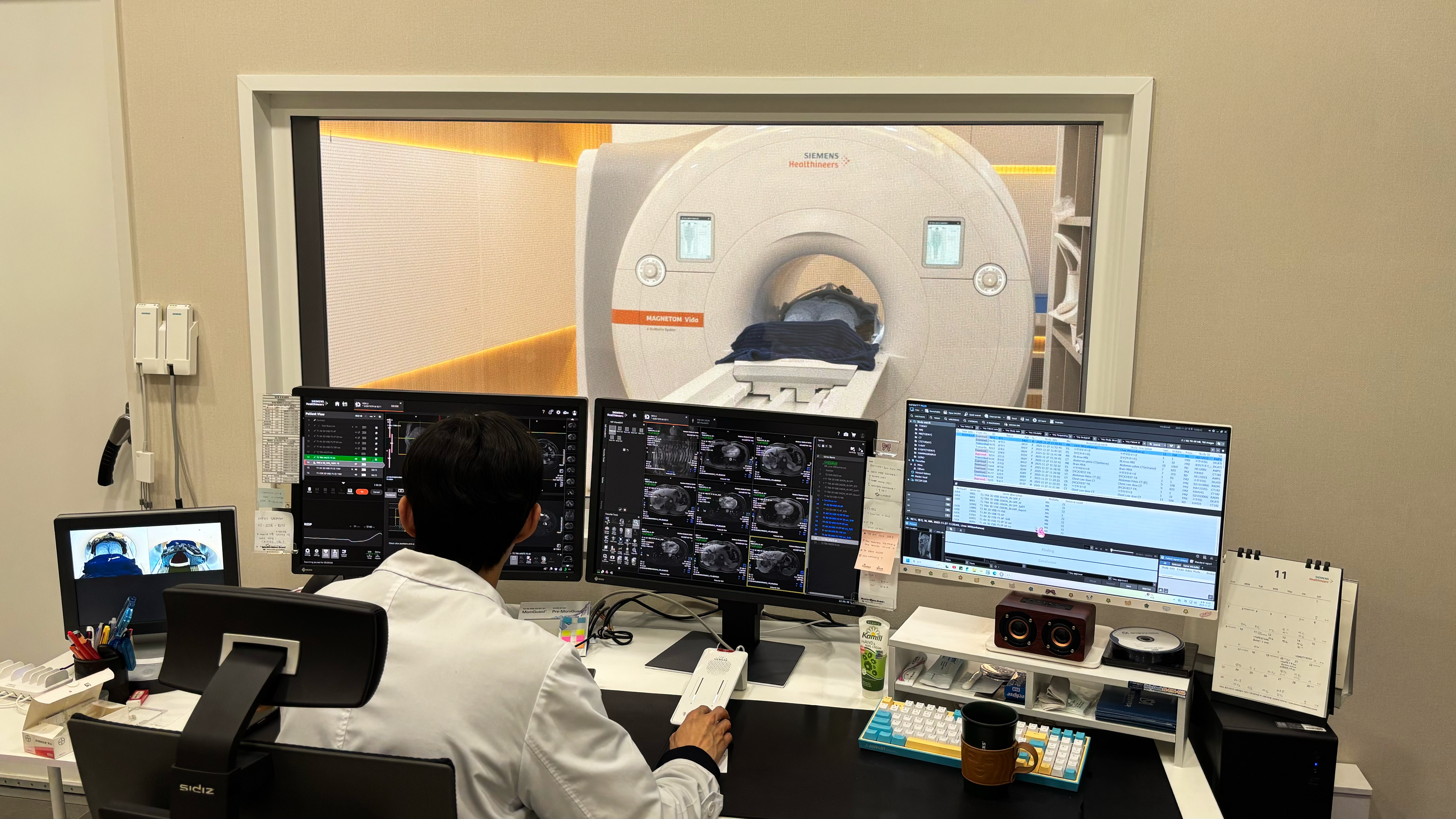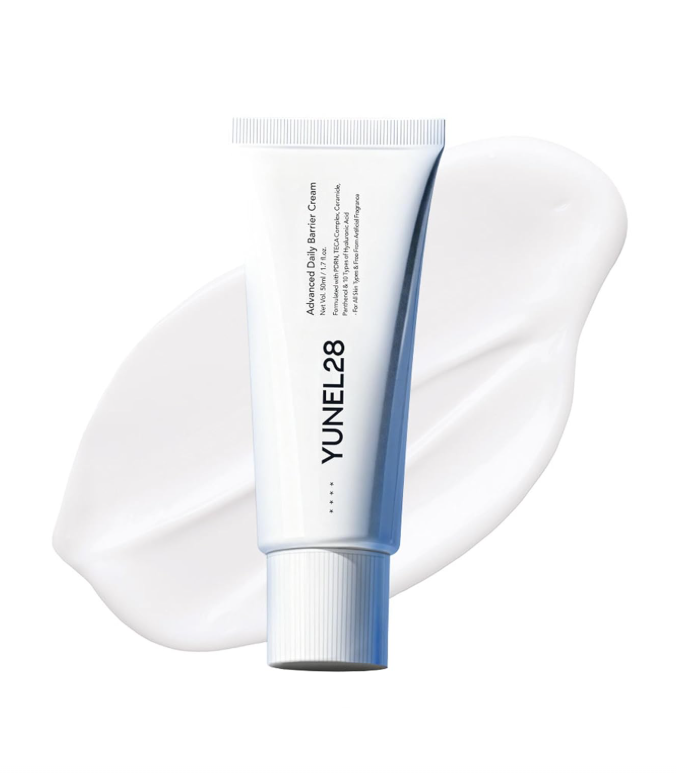
Should You Get a Whole Body MRI Scan in Korea?
Should You Get a Whole Body MRI Scan in Korea?

“A whole body MRI should not be a passive scan followed by delayed reading — it should be an active clinical process. Patients communicate directly with an on-site radiologist inside the clinic, allowing findings to be evaluated, refined, and clarified in real time during the exam. This physician-led workflow delivers faster, more precise diagnosis, meaningful same-day clinical insight, and true peace of mind.” Donkyo Seo, CEO of Himedi
Considering Prenuvo?
Prenuvo helped bring whole body MRI into the mainstream. For many people, it was the first time preventive imaging felt accessible. But once the concept is accepted, the question changes.
Not whether to get a whole body MRI — but how it’s actually done in real clinical settings.
- Who interprets the images?
- How much clinical judgment is involved?
- What happens if something concerning appears?
This is where Korea takes the idea further.
Korea
Korea is widely recognized as one of the best places in the world for MRI imaging — not because it is cheaper, but because it is deeply clinical, highly efficient, and technology-driven.
According to the Korean Society of Magnetic Resonance in Medicine (KSMRM, 2025), Korea ranks:
- 3rd in the OECD for MRI units per million people
- 1st globally for MRI scans performed per million people
This density creates a virtuous cycle: high imaging volume fuels faster technological evolution, where AI-assisted systems and radiologists together refine accuracy, efficiency, and clinical insight — day after day.
Building on these strengths, Himedi partnered with leading Korean centers to launch a Whole Body MRI + Comprehensive Checkup program. Our latest partnership with Medione raises both image quality and clinical depth even further.
Comparison
Prenuvo: Enhanced Screening with Whole Body Scan Medione (via Himedi): Whole Body MRI + Checkup
| Prenuvo | Medione (via Himedi) | |
|---|---|---|
| MRI | 1.5 Tesla | 3.0 Tesla |
| Clinical Interpretation Model | Centralized off-site radiology reading | On-site radiologist-led interpretation |
| Real-Time Radiologist Intervention | Not available | Live radiologist intervention during scanning, real-time patient consultation, dynamic protocol adjustment, and additional imaging when clinically indicated |
| Time to Actionable Insight | Days to weeks | Same-day preliminary clinical feedback |
| Full Result Turnaround | 3-4 weeks | 2 weeks |
| Price | $3,999 | $2,000 |
Real-time radiologist involvement transforms the MRI from a passive scan into an active clinical decision process — giving patients faster clarity and peace of mind.

Package Details: Whole Body MRI + Checkup
| Exam | Detailed Items |
|---|---|
| MRI |
1. Brain MRI
Silent cerebral infarction / chronic ischemic changes
Dementia-related changes (Alzheimer’s: hippocampal atrophy; vascular dementia)
Brain tumors (meningioma, glioma, metastasis)
Demyelinating diseases (e.g., multiple sclerosis)
Congenital structural anomalies (arachnoid cyst, Chiari I malformation)
2. Brain MRA
Intracranial aneurysm
Cerebral arterial stenosis or occlusion
Moyamoya disease
Vascular malformations (AVM, DVA)
Vascular variants (infundibulum, fenestration)
3. Cervical Spine MRI
Cervical disc herniation (HIVD)
Cervical spinal canal stenosis
Cervical alignment abnormalities (loss of lordosis/kyphosis)
Spinal cord compression lesions
Degenerative cervical spondylosis
4. Mediastinum MRI
Thymic lesions (thymoma, thymic hyperplasia)
Mediastinal lymphadenopathy
5. Abdomen (Liver–Pancreas–Kidney)
Fatty liver / chronic liver disease
Hepatic masses (hemangioma, FNH, adenoma, HCC)
Pancreatic tumors or ductal dilatation
Renal cysts and renal cell carcinoma
Biliary disease (gallstones, bile duct dilatation)
6. Lumbar Spine MRI
Lumbar disc herniatio
Lumbar spinal canal stenosis
Degenerative lumbar spondylosis
Nerve root compression
Spinal tumors or metastatic disease
7-1. [Female] Pelvis
Uterine fibroids / adenomyosis
Ovarian cysts or ovarian tumors
Pelvic inflammatory disease
Pelvic lymphadenopathy
Pelvic vascular congestion
7-2. [Male] Prostate (Prostate MRI)
Benign prostatic hyperplasia (BPH)
Prostate cancer (clinically significant lesions)
Prostatitis / inflammatory changes
Prostate nodules (transition vs peripheral zone)
|
| X-Ray | Chest X-Ray |
| Blood tests | Liver, hepatitis, kidney, gout, CBC, rheumatoid, inflammatory, pancreatic, diabetes, anemia, thyroid, electrolyte, cardiac, lipids |
| Tumor markers | AFP(liver), CEA(colon), CA 19-9 (pancreas), PSA (male), CA125(female) |
| Specimen | Glucose, bilirubin, ketone, SG, pH, protein, urobilinogen, nitrite, blood, RBC, WBC |
| Vitals & Function | Height, weight, body composition, blood pressure, audiometry, EKG |
| Vision Test | Visual Acuity, Fundus Exam |
Global Top-Tier 3.0T MRI Technology
Medione is equipped with the Siemens MAGNETOM VIDA 3.0T MRI, a research-grade system used by Korea’s top university hospitals.

- 60/200 gradient system used in advanced research
- AI-powered ultra-fast protocols (some sequences in ~3 minutes)
- High-definition imaging with reduced noise
This article was co-authored and medically reviewed by Dr. Won-Jeong Park (Radiologist) and Donkyo Seo, CEO of Himedi.
Interested in booking Medione?
Contact Himedi to start planning your Whole Body MRI in Korea.



